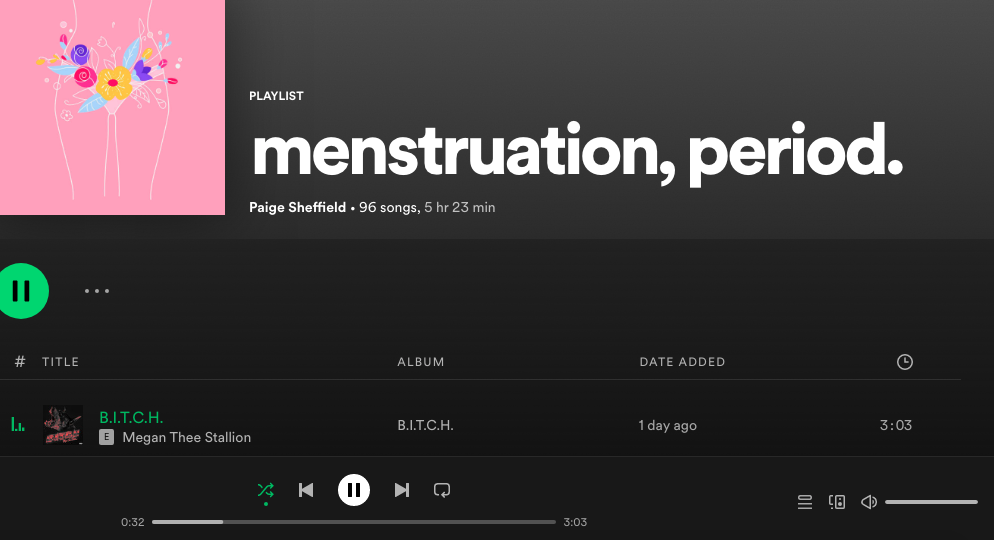Let me start by saying that it’s not that the concept of self-care is inherently bad. It’s important to take care of ourselves and our mental wellbeing. For me, good, productive self-care has looked like resisting the urge to commit to too many things, prioritizing sleep, meditating when I’m feeling really anxious, and having “slow” mornings – enjoying my coffee, lighting a candle, easing into my day.
I’m just a little skeptical of “self-care” that 1. reeks of lipstick feminism and makes me “more attractive” 2. makes me feel like I need to buy more products.
I’ve always had an issue with makeup. Many companies have sold women their products by making them feel like they’re not pretty enough, using women’s insecurities to convince them that they need a ton of different products to fix their flaws. While it’s less socially acceptable to use those tactics now, I can’t help but feel like using self-care as a marketing ploy is more or less the same thing. Maybe it’s less “you’re not pretty enough” and more “you’re not taking care of yourself well enough.” The marketing schemes are meant to make us think we’re doing it for ourselves, but if I’m really doing it for myself, why is someone else – especially someone who does not actually care about my wellbeing – making a profit?
Of course, there’s nothing inherently wrong with buying makeup or skincare products, and some brands are more ethical than others. But the idea that these products are empowering somehow is also toxic; the idea that we need to buy more in order to feel good is what I have a problem with. Wearing makeup or buying skincare products is not necessarily harmful to our wellbeing, but wearing more makeup does not mean we are taking care of ourselves. Lathering on five different kinds of soap doesn’t mean we are taking better care of ourselves. Sometimes I want to buy soap that supposedly makes your butt look better, and sometimes I’m like “wtf is the male gaze doing in my self-care routine?”
The reality is that there are many ways to take care of ourselves that don’t cost money, in addition to many ways to take care of ourselves that are incredibly important, too expensive, and also not glorified on social media (like getting a pap smear, for example). Going to the dentist could be self-care, except it’s not sexy enough. Why, when scrolling through Instagram, does it feel like self-care has to be sexy?
All my life, I’ve never really cared about makeup because I’m not too concerned with aesthetics or how I look. It’s just not how I prefer to spend my time and money (but it’s totally fine if other people enjoy it). Self-care messaging is somehow what made me more insecure, suddenly making me think hey, maybe I need eyeshadow and separate types of soap for my legs, arms and butt because I need to take care of myself like all the other women on social media. “Self-care” has made me feel like I need to be prettier and more stereotypically feminine, which again makes me wonder if it’s really self-care if it’s pushing me to conform to stereotypical feminine beauty standards (that I personally am not a fan of).
Again, I think it’s a good thing that we’ve embraced taking care of ourselves – and if your idea of self-care is different from mine, that’s completely okay because it’s self-care. I’m not saying that it’s bad to buy mud masks. But I also think it’s important to be skeptical of companies that might be using the movement against us, and using our desire to better ourselves as a way to, once again, profit off of our insecurities. Self-care should be about me, what makes me feel good, what I want. It should have nothing to do with how I’m perceived by other people.
I need to make sure my self-care routine is created with my own needs in mind, and not because social media made me feel like I needed to do it. If I’m doing it because I feel pressured, that’s not self-care. If I’m doing it because some guy with a beauty company made me feel like I am not feminine enough, that’s not self-care. My self-care routine might not be aesthetically pleasing enough for social media. It might be messy, even. Imperfect. Cheap, because I’m on a budget. It might not make me any prettier. And so what? It feels good.






